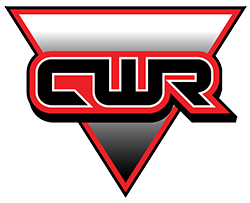Safety Considerations for Industrial Refrigeration

Industrial refrigeration systems play a critical role in many industries, such as food processing, pharmaceuticals, and chemical manufacturing, where temperature control is essential. These systems, however, come with inherent risks due to the use of large quantities of refrigerants, complex machinery, and high-pressure systems.
Ensuring the safety of personnel, equipment, and the environment is paramount when operating and maintaining industrial refrigeration systems. Let’s explore the key safety considerations for industrial refrigeration, covering potential hazards, best practices, and the regulations designed to minimize risks.
Understanding the Hazards in Industrial Refrigeration
Before diving into safety measures, it’s important to understand the common hazards associated with industrial refrigeration. First, industrial refrigeration systems typically use refrigerants such as ammonia, carbon dioxide, or synthetic refrigerants. Each of these substances presents unique hazards.
For example, carbon dioxide can pose a risk of asphyxiation in confined spaces if concentrations become too high, while synthetic refrigerants can harm the environment. Here at Central Washington Refrigeration, we recommend using ammonia for a refrigerant as it’s cost-effective, environmentally friendly, and energy efficient.
Second, industrial refrigeration systems often operate under high pressure, increasing the risk of equipment failure, ruptures, or leaks. Improper handling of pressurized systems can lead to serious accidents, including explosions or chemical releases. Mechanical and electrical hazards, such as electric shocks or burns, are also a concern. Lastly, exposure to extreme cold temperatures from refrigerants or refrigeration components can lead to frostbite or cold burns.
Safety Considerations and Best Practices
To minimize the risks associated with industrial refrigeration, a combination of proactive measures, training, and adherence to safety standards is required. Here are some key safety considerations:
Proper Training and Certification
Personnel operating or maintaining industrial refrigeration systems should receive proper training. Training should cover the specific hazards of the refrigerants being used, the operation of the refrigeration system, and emergency procedures in the event of a leak or other incident.
Some of the things operators should be familiar with include the properties and hazards of the refrigerants, proper use of personal protective equipment (PPE), and emergency response protocols. Regular refresher courses should be conducted to keep all staff updated on new regulations, equipment, and safety procedures.
Leak Detection and Monitoring Systems
Installing and maintaining leak detection systems is essential for ensuring early identification of refrigerant leaks. These systems should be calibrated to detect even small leaks of toxic or hazardous refrigerants like CO₂, triggering alarms and automated shutdowns when necessary. Monitoring systems should be able to continuously measure refrigerant levels in the air, alert personnel to potential leaks, and automatically initiate emergency ventilation or shutdown procedures.
Use of Personal Protective Equipment (PPE)
When working with industrial refrigeration systems, wearing appropriate PPE is critical for protecting against exposure to harmful refrigerants and other hazards. The type of PPE required will depend on the refrigerant and the task at hand but may include:
- Respiratory Protection: For ammonia and CO₂ systems, respirators may be required in areas where there is a risk of inhaling toxic fumes or gasses.
- Cold-Resistant Gloves and Clothing: To prevent frostbite and cold burns when handling refrigerants or working near exposed cold surfaces.
- Eye Protection: To protect against chemical splashes or exposure to high-pressure releases.
- Face Shields: When dealing with high-pressure systems, face shields can protect against potential refrigerant spray or debris.
Regular Maintenance and Inspections
Routine maintenance and inspections are essential to ensuring the continued safe operation of refrigeration systems. Preventative maintenance helps to identify potential issues before they become serious hazards. Key maintenance tasks include inspecting compressors and motors, checking seals and valves, monitoring pressure levels, and calibrating sensors and alarms. Establishing a regular maintenance schedule is also important.
Emergency Procedures and Preparedness
Developing a clear, well-documented emergency response plan is crucial for handling potential incidents such as refrigerant leaks, equipment failure, or fires. All personnel should be familiar with the plan and know their role in responding to an emergency. Key components of an emergency plan include evacuation procedures, emergency shutdown protocols, first aid measures, and fire safety.
Compliance with Safety Standards and Regulations
Adhering to relevant local, national, and international safety standards is crucial for maintaining a safe industrial refrigeration environment. Key regulations include OSHA, EPA, ASHRAE, and international standards such as ISO 5149.
For instance, OSHA sets specific guidelines for the use of hazardous chemicals in refrigeration systems, while the EPA regulates refrigerants that are harmful to the environment. ASHRAE publishes standards for the safe design and operation of refrigeration systems, and international standards provide additional guidelines for ensuring safety in industrial refrigeration.
Environmental Considerations
Ensuring the safe handling of refrigerants not only protects personnel but also prevents environmental harm. This includes properly disposing refrigerants and preventing refrigeration leaks through regular maintenance.
Industrial Refrigeration in Washington, Oregon, and Idaho
Safety in industrial refrigeration is a multifaceted challenge that requires vigilance, proper training, regular maintenance, and strict adherence to safety standards. Central Washington Refrigeration specializes in large-scale cold storage systems. Aside from designing and building these units, we also provide maintenance and safety management solutions, as well as continuing education classes for industrial professionals. To learn more, please contact us today at 509-248-4600.
